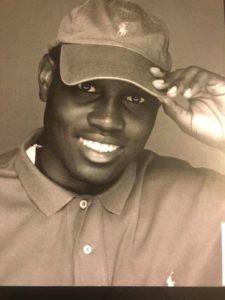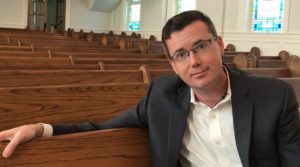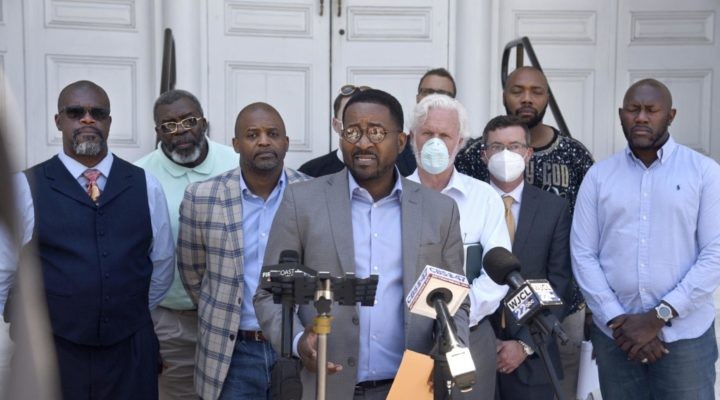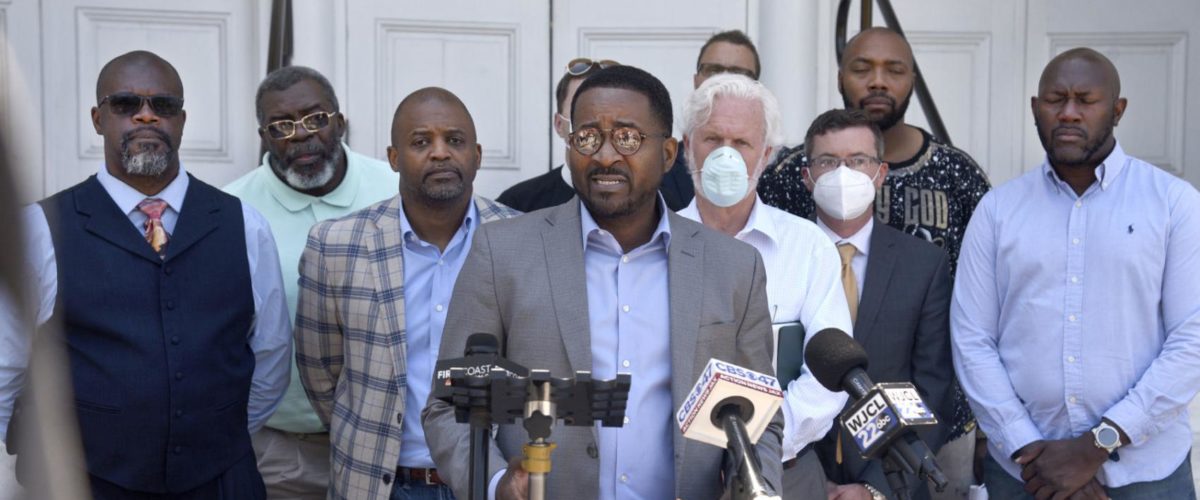The February killing of Ahmaud Arbery in Brunswick, Georgia, has brought some local clergy together.

Ahmaud Arbery
“We meet as both black and white and from across the theological spectrum, Christian and Jewish,” said Tony Lankford, the senior pastor of First Baptist Church in St. Simons Island, which, like Brunswick, is located in Glynn County.
The ministers have worked with the NAACP to hold press conferences, including one today expressing solidarity with Arbery’s family and urging Georgia’s governor and legislators to adopt bipartisan anti-hate crime legislation.
These actions stem from Arbery’s Feb. 23 shooting death. The black man was accosted while jogging by a white father and son, Gregory and Travis McMichael, who claimed they were apprehending a burglary suspect when the shooting occurred.
Gregory McMichael – a former police officer and investigator with the Glynn County District Attorney’s Office – and his son were let go by police and remained free until a video of the shooting surfaced earlier this month. Both men were eventually charged with murder, but only after the Georgia Bureau of Investigation intervened.

Tony Lankford
Today’s press conference, Lankford said, was designed to continue demands for transparency from local and state authorities.
“We seek to offer words of hope and unity and calls for justice,” he added.
Lankford is no stranger to confronting injustice. He formerly led a church in inner city Atlanta which was active in social justice causes.
“I’m tapping into that skill set and hopefully can use it for good in this setting,” he said.
Lankford spoke with Baptist News Global about ministerial and NAACP efforts to shed light on the Arbery killing. His comments are presented here, edited for brevity and clarity.
What is the mood in Glynn County right now?
It is tense. There is concern about what this means for the larger policing and judicial process of our county. This is not the first time in the recent past that Glynn County police have been called out. The county is coming to terms with the Arbery murder but also with the wider spectrum of corruption. That’s been really hard to process as a community.
Do you remember how you first learned of the incident?
When it occurred, it was a blip in the local paper. It fell through the cracks. It gained little attention in local or national news. When it came back to the surface several weeks ago, before it started making national news, a clergy friend asked if I had heard about it. I was sad that I didn’t know the details about the situation, and I started doing my own research and was disgusted by what I found.
What kind of emotions have you experienced in all of this?
As a community member I have feelings of anger towards those who have misused their public trust, but as clergy I have had genuine sadness for those who have been experiencing such unfair treatment for decades and even generations. I have come to more fully understand how my African American colleagues are tired of doing this by themselves.
Does Ahmaud Arbery’s death take you back to your ministry in Atlanta?
It absolutely does. When I was at Park Avenue Baptist Church (2004-2015), this was part of the pastoral call there and this certainly feels similar to those incidents of community violence to which I was called to bring a Christian presence.
What actions have you and the other ministers taken to address this issue?
We held a press conference a couple weeks ago which ended up on CNN and PBS, and even Fox News. We have been coming together and we have continued that momentum. We met again this past week to formalize what our role is from both a Jewish and Christian perspective.
Is it the clergy’s hope to influence prosecutorial conduct in this case?
That’s always the hope. You’re pushing for honesty and integrity and fairness. I think it also puts people like the governor and our legislators on notice that we expect honesty and integrity.
Is this something that’s come up in your church?
Yes. On Mother’s Day we prayed for Ahmaud’s mother and family. We brought up the tension felt throughout our community as we grapple with this. It’s come up in Zoom Sunday school classes. It’s part of nearly everyone’s conversation.
Related commentary
James Ellis III | A lowdown, dirty shame: Ahmaud Arbery’s murder and the unrenounced racism of white Christians
Paul Robeson Ford | Ahmaud Arbery and a pandemic of injustice


